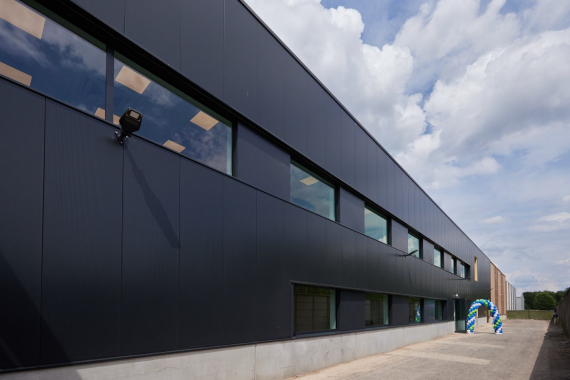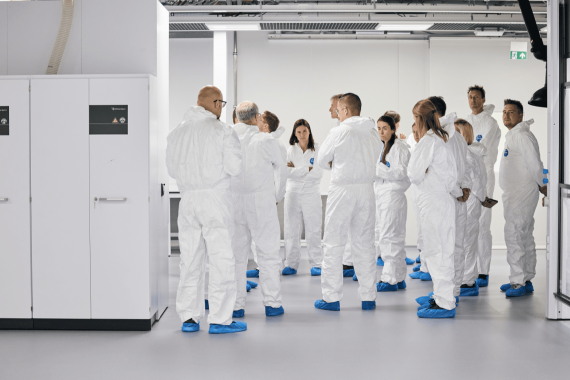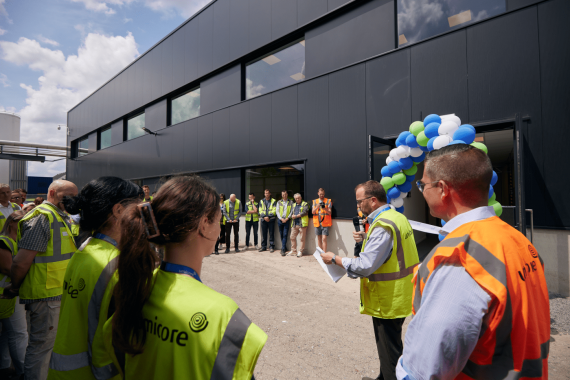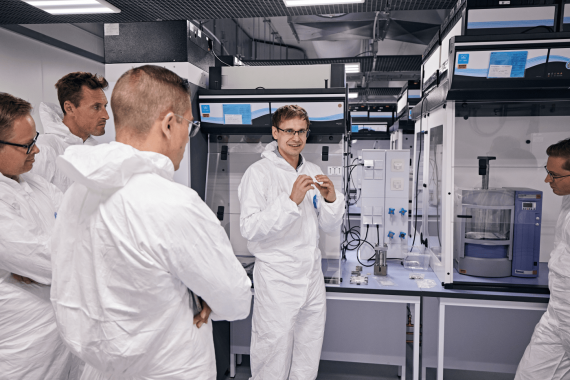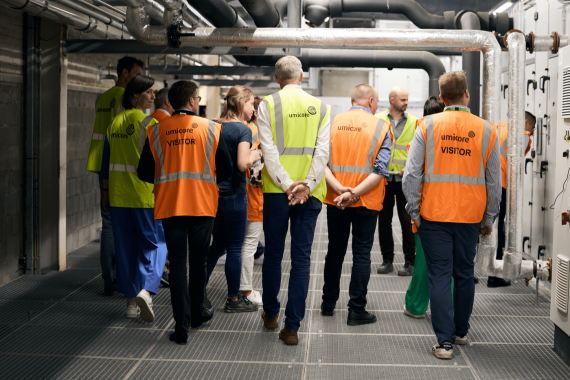Umicore speeds up its EV battery materials R&D with unique large-scale prototyping center for solid-state battery materials
Umicore has inaugurated today one of the world‘s largest and most advanced solid-state battery material prototyping facilities in Olen, Belgium, which will expand and accelerate its innovation and technology development in this domain. Solid state batteries are expected to propel electric mobility and will complement Umicore’s world leading portfolio of battery materials technologies.
The 600 m² facility with state-of-the-art installations and equipment supports the full chain of solid-state battery development -- from the formulation of the materials, their characterization and production, to battery cell assembly and subsequent testing on battery level. With this complete approach it is possible to develop new material categories, including catholytes, which combine cathode active materials and solid electrolytes.
“Umicore’s unique prototyping center will further scale up and advance our innovation and technology leadership in solid-state battery chemistries which we’ve been developing since 2017 with multiple key patents. We are committed to our frontrunner position in the cathode materials industry, and this new facility is a critical step in strengthening our leadership even further, increasing our capacity for prototyping and with that our ability to support our customers by a factor of more than 10,” said Mathias Miedreich, CEO of Umicore.
Umicore has transformed an industrial building on its site in Olen, which also harbors the Group’s Research and Development headquarters, into this unique cutting-edge facility.
Developing solid-state batteries involves materials that are extremely sensitive to moisture and therefore require specialized infrastructures, including exceptionally dry air. Humidity levels inside Umicore’s laboratory are at less than 0.1% as each hour 200,000m3 of dry air is blown through the facilities. Such dry air is essential for the accurate testing, analysis, and development of this next generation of cathode active materials.
Conducting R&D inside such dry conditions allows Umicore to optimize and conserve its resources. The ultra-dry air preserves the stability of battery materials and extends their lifespan, thereby reducing frequent material replacements. Instead of having to work within the confines of isolated glove boxes, researchers can manipulate products more freely in a larger, open area. These dry rooms are moreover energy efficient as precise testing and analysis minimize trial and error iterations.
Umicore’s leading battery materials technology portfolio consists of its present mid-to-high nickel NMC (nickel, manganese, cobalt) technologies, near-term manganese-rich HLM (high lithium, manganese) technologies and future Na-ion (sodium-ion) cathodes and solid-state battery technologies. Solid-state batteries are the next-generation batteries with performance improvements on several fronts. Their higher energy density will increase the driving range of electric vehicles and allow for their faster charging. The replacement of today’s liquid electrolyte with a solid one will enhance the safety and lifespan of rechargeable batteries, reduce their size, weight and ultimately, cost.


